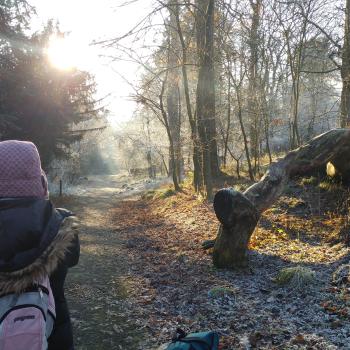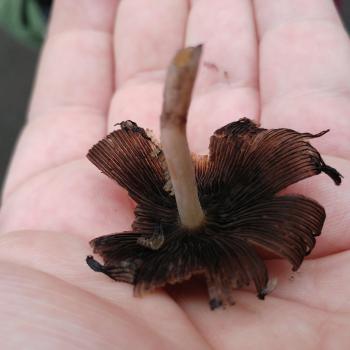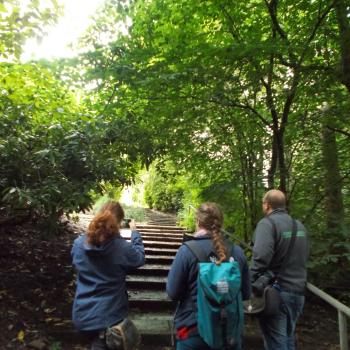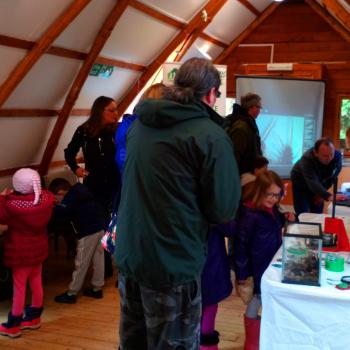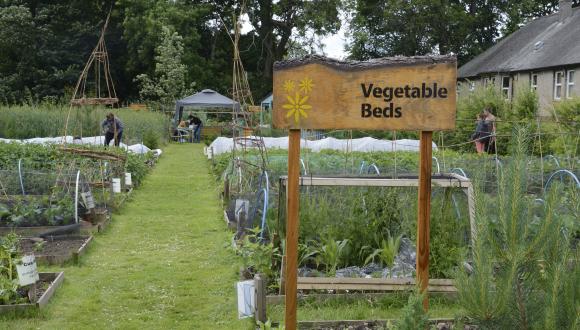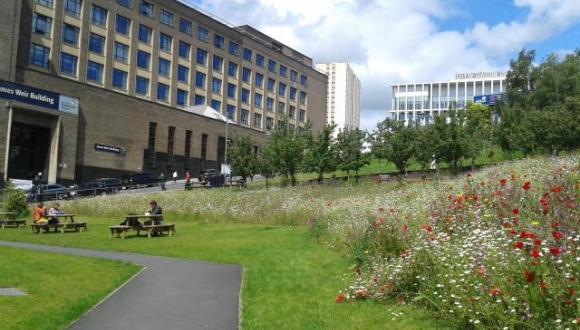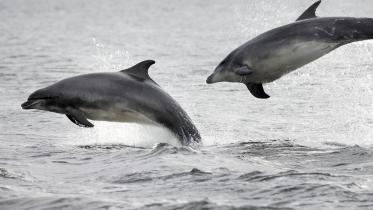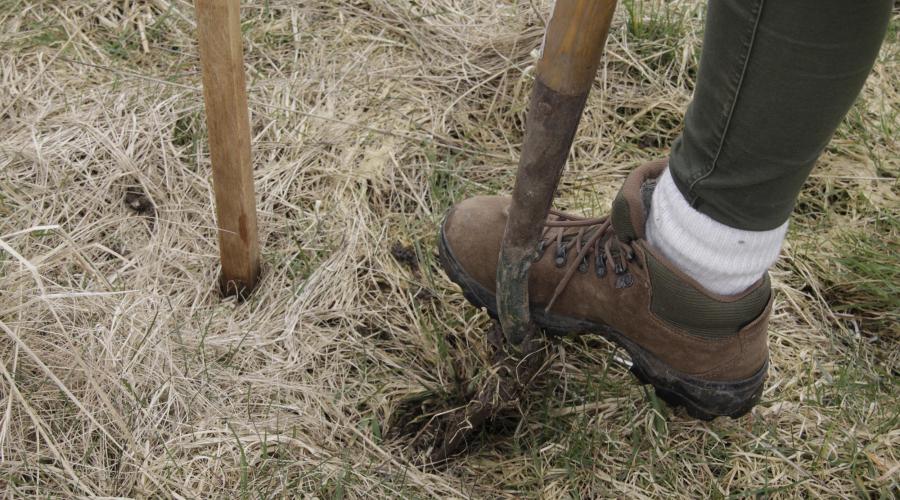
Wild Ways Well
A greenspace improvement programme that supported individual resilience and wellbeing for people at risk of developing a mental health condition
Wild Ways Well
Grantee: The Conservation Volunteers
What the project set out to achieve
The Conservation Volunteers (TCV), in partnership with Cumbernauld Living Landscape (CLL) proposed a greenspace improvement programme to support individual resilience and wellbeing for people at risk of developing a mental health condition.
The proposed programme would will be delivered in key green infrastructure areas in and around Cumbernauld and would:
- Support active involvement in improving greenspaces for wider community use and benefit.
- Provide opportunities for improvements in physical and mental health
- Improve the quality, accessibility and quantity of the Cumbernauld Living Landscape through volunteer participation
- Deliver greater engagement and understanding of local greenspaces via community and individual engagement in the programme
- Reduce levels of loneliness and social isolation
Where the project idea came from
Wild Ways Well was an adaptation of TCV’s Green Gym delivery model incorporating elements of Mind’s model of resilience and New Economics Foundation’s Five Ways to Wellbeing model. TCV worked closely with CLL who are responsible for the strategic management of green infrastructure in and around Cumbernauld. TCV had Wild Ways Well trainees test and develop the idea within the CLL. This was through our HLF funded Natural Networks programme in 2016/17 and the HLF funded Natural Communities programme (2015/16).
How the community helped develop the project
The project was co-designed nationally with mental health charity Mind and locally tested with a range of partners and beneficiary groups during a pilot phase in Cumbernauld in 2016.
From this pilot, qualitative evidence gathered provided support for the use of a Wild Ways Well approach for participants at risk from social isolation and poor mental health. The pilot report (Jan 2017) stated in conclusion that “By bringing people together to enjoy and develop an awareness of local nature and wildlife, building on individual and community assets - Wild Ways Well creates and maintains positive social relationships; building physical and psychological strength and resilience with benefits for individuals and the whole community. By integrating physical and mental health, particularly for those who are unaware of the need to or reluctant to increase activity levels; Wild Ways Well promotes purpose and participation enabling people to build self-esteem and confidence levels. “
How the project fits into the bigger picture
Wild Ways Well will contributed to the achievement of local Health and Wellbeing strategies across the country, providing an effective prevention and early intervention programme. It enhanced local capacity; reduce costs for Healthcare services, and provided a mechanism to establish greater community cohesion. The project directly supported the reduction of health inequalities by targeting recognised at-risk groups in disadvantaged areas of Cumbernauld with the provision of a non-threatening and stigma-free intervention.
Beyond this TCV see application of the Wild Ways Well delivery model with other landscape type initiatives, both urban and rural, and in a range of settings including NHS estates, housing associations and within the education sector where It is well documented that schools, and secondary schools in particular, have an increasingly important role to play in early intervention provision for children and young people with emerging, low-level mental health problems.
What the project contributed
TCV employed a full-time Project Officer tasked with developing all aspects of the programme over a longer period including developing education and training materials and strengthening the WWW evaluation framework with their existing partner, Edinburgh University.
WWW sessions included tree and wildflower planting activities, with participants trained in species ID and in Invasive Non Native Species identification and removal techniques. Regular litterpicking sessions were held. Participants took part in citizen science projects including bee, butterfly, dragonfly, badger and bird surveys and ID sessions. Key volunteers were trained and supported to improve their skills in leading and organising groups.
All sessions involved a health walk. Most sessions involved walking from an urban area to a greenspace, highlighting the available routes. Techniques such as creating informal maps and using wearable technology (fitbits) were used to stimulate interest in walking. All sessions utilised the Five Ways to Wellbeing mental health framework. Project leaflets and booklets were produced highlighting this and they were explicitly discussed wherever appropriate. Participants were clear on the mental health benefits of spending time in greenspace.
All sessions included an environmental sustainability message. All sessions encouraged use of public transport and walking. The Neighbourhood Networks group in particular benefitted from this, several members independently travelled to the sessions using public transport for the first time in their lives.
Although the GICEF-funded project has finished, the Wild Ways Well project will continue as part of the Green Health and Wellbeing strand of the Cumbernauld Living Landscape. The Senior Project Officer will remain in post so there will be continuity for the participants.





